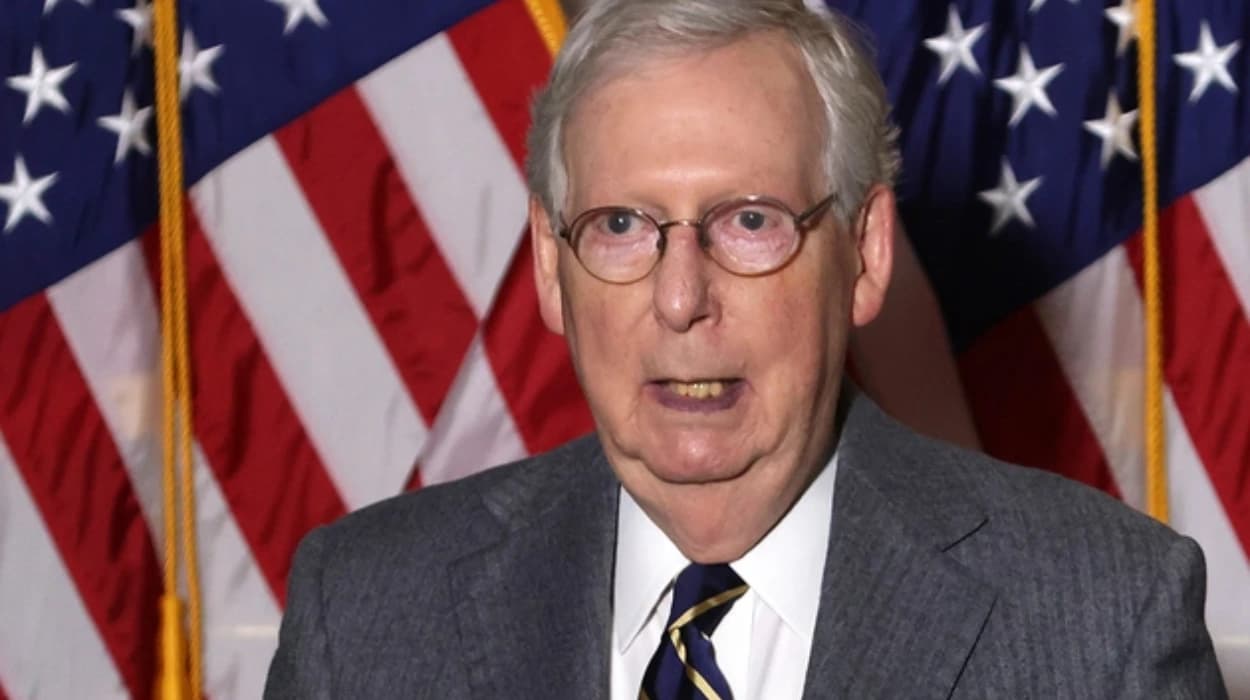Mitch McConnell Kentucky’s longtime Senate GOP leader – has been a defining figure in American politics for nearly four decades. As the senior senator from Kentucky and the longest-serving Senate Republican leader in U.S. history, McConnell’s career is marked by his strategic political maneuvering, legislative leadership, and unwavering influence within both his party and the Senate.
Early Life and Education: Foundations of a Political Career
Born Addison Mitchell McConnell III in 1942 in Sheffield, Alabama, Mitch McConnell’s early years were shaped by resilience and perseverance. At the age of two, he contracted polio, which partially paralyzed his left leg, a challenge that he overcame through intensive treatment. His family later moved to Louisville, Kentucky, where he attended duPont Manual High School and became student council president, indicating early leadership skills.
McConnell went on to earn a Bachelor of Arts in political science from the University of Louisville, graduating with honors, followed by a Juris Doctor degree from the University of Kentucky College of Law. His internship with Senator John Sherman Cooper and participation in civil rights rallies, including the historic March on Washington for Jobs and Freedom, exposed him to national political currents and helped ignite his interest in public service.
Early Career and Ascension to the Senate
After briefly serving in the U.S. Army Reserve in 1967, McConnell began his political career as a legislative assistant to Senator Marlow Cook. He returned to Kentucky and gained experience working as an attorney, teaching political science, and holding local political office. In 1977, McConnell was elected Jefferson County Judge/Executive, the highest political office in the county.
In 1984, McConnell won a seat in the U.S. Senate, defeating the incumbent. Since taking office in 1985, he has been reelected multiple times, becoming the longest-serving senator in Kentucky’s history. His tenure reflects a trajectory from moderate Republican roots toward a more staunchly conservative and partisan leadership style.
Senate Leadership and Political Influence
McConnell has held numerous leadership roles, most notably as Senate Majority Leader from 2015 to 2021 and Senate Minority Leader before and after that period. His leadership tenure is the longest for a Senate Republican, reflecting his deep mastery of Senate rules, negotiation tactics, and party discipline.
He is widely recognized as one of the most skilled political strategists in Washington. His approach is often characterized by calculated obstructionism and an emphasis on maintaining Republican unity, especially during Democratic presidencies. McConnell spearheaded opposition to many Democratic initiatives, frequently using procedural tools such as the filibuster to block legislation and judicial nominees.
Legislative Achievements and Political Tactics
Despite his reputation as an obstructionist, McConnell has overseen significant legislative achievements when Republicans controlled the Senate. Key accomplishments under his leadership include the passage of landmark tax reform legislation, regulatory rollbacks, criminal justice reform with the First Step Act, and confirmation of a record number of federal judges, including three Supreme Court justices.
He notably changed Senate norms by invoking the “nuclear option” to eliminate the 60-vote threshold for ending filibusters on Supreme Court nominations, facilitating confirmations during the Trump administration.
At the same time, McConnell’s tenure shows a pattern of prioritizing political gain over bipartisan cooperation, particularly evident in his handling of Supreme Court nominations and resistance to popular health care reforms.
Relationship with Presidential Administrations
McConnell’s leadership was defined by his relationship with successive presidents. During Barack Obama’s administration, McConnell adopted a strict opposition strategy, urging Republicans to block major initiatives to weaken the Democratic agenda. His stance emphasized party loyalty and electoral advantage.
Under President Donald Trump, McConnell was aligned with many domestic and foreign policies, facilitating landmark conservative reforms. However, he publicly criticized Trump’s efforts to overturn the 2020 election and held the president morally responsible for the January 6 Capitol attack, reflecting a complex dynamic.
Impact on U.S. Senate and American Governance
Mitch McConnell fundamentally reshaped the U.S. Senate’s operational landscape. His strategic use of Senate rules, including filibusters, procedural delays, and nomination blocks, has changed how legislation and confirmations are managed. He has been both lauded for his tactical brilliance and criticized for contributing to partisan gridlock and diminished democratic norms.
His influence extends beyond legislation to shaping the judiciary’s composition, thereby affecting American law and society for decades.
Legacy and Retirement
After decades of service, McConnell announced in 2024 that he would step down as Senate Republican Conference Leader and would not seek reelection in 2026. His retirement marks the end of an era in Senate leadership.
Time magazine recognized McConnell among the 100 most influential people multiple times, attesting to his far-reaching impact. As Kentucky’s longest-serving senator and the longest-serving Senate Republican leader in history, he leaves behind a complex legacy of strategic dominance, partisan battles, and institutional transformation.
Mitch McConnell’s career exemplifies the exercise of political power through strategy, discipline, and persistence. As Kentucky’s senior senator and longtime GOP leader, he has shaped Senate politics in profound ways, influencing legislation, judicial appointments, and party dynamics. His tenure reflects the challenges of governance in a polarized environment and demonstrates how political acumen can define an era in American politics.

